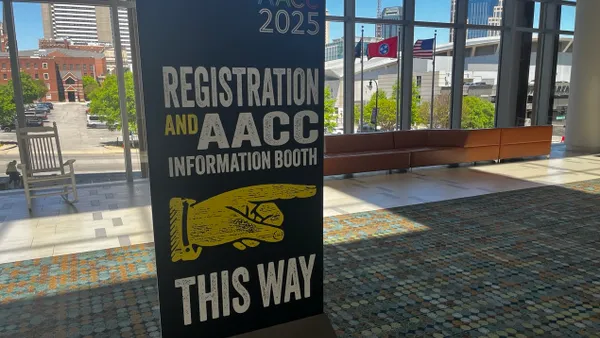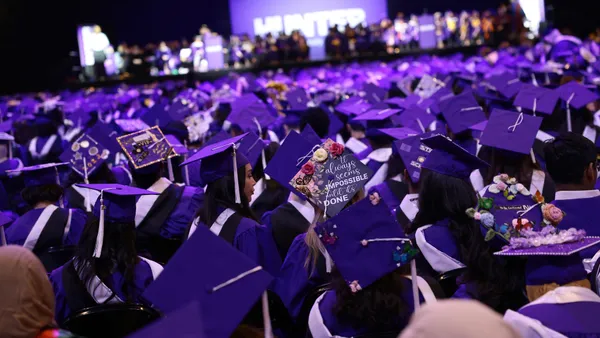Dive Brief:
- Students who enroll in online bachelor’s programs are less likely to complete their degrees than students who take at least some in-person courses, according to a new working paper from University of Florida and West Virginia University researchers.
- They found students in exclusively online programs were 8.3 percentage points less likely to complete their bachelor’s degrees than students who took in-person classes.
- Online students also fared differently depending on what type of institution they attended. For instance, online students at for-profit universities were 11.9 percentage points less likely to finish their bachelor’s degrees than their peers at other four-year colleges.
Dive Insight:
Black, Hispanic, Asian and White students were all significantly less likely to complete their programs if they took only online classes. But Asian students taking online programs fared the worst compared to their in-person peers, as they were 21.7 percentage points less likely to finish their programs.
Researchers looked at 22,500 students who attended college between 2012 and 2017.
The paper, which has not been peer-reviewed, adds to the evidence suggesting that students who take online programs perform worse than those enrolled in face-to-face offerings. A 2021 study of Colombian students, for instance, found those who completed online bachelor’s degrees performed worse on their exit exams than their in-person peers.
Still, the research is mixed.
One 2014 study found community college students who took some classes online early in their academic careers were more likely to earn a credential than their peers who only took in-person classes.
Similar research in 2021 found students who took degree-required courses online completed their bachelor’s programs at higher rates than their peers who didn’t take virtual classes. They also finished their programs slightly faster.
In the new study, researchers noted that exclusively online students often don’t have much time to focus on college and face challenges that make them less likely to finish their programs — regardless of whether they’re attending online or in person.
“We encourage readers to interpret our findings as another piece of evidence suggesting that online education can have a negative influence on students’ academic outcomes, but that does not necessarily suggest that enrolling in an exclusively online degree program is the sole cause of a given student’s decision to leave college without a degree,” the researchers wrote.
The researchers suggested colleges invest further into wraparound services and support for online students. They also advised that lawmakers should require colleges to report how much it costs for them to run exclusively online programs — as well as how much revenue they earn from them.














